
NHMRC Australia Fellow, Department of Biochemistry
La Trobe University.
David Vaux is best known for identifying the proto-oncogene bcl-2 as an inhibitor of cell death, thus launching the field of molecular biology of apoptosis (programmed cell death). His subsequent work on the 'Inhibitor of Apoptosis' family of proteins has underpinned the development of a novel group of compounds currently undergoing clinical trials in humans for the treatment of cancer, placing him at the forefront of biomedical science.
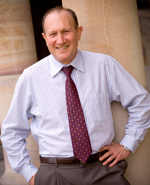
Research Professor, Centre for Nutrition and Food Sciences
University of Queensland
Robert Gilbert’s research covers three fields not normally considered to be related: the dynamics of chemical reactions, mechanisms of polymerisation, and the relationship between structure and property of biopolymers. This has led to new types of experiments on complex chemical systems, such as emulsions and paints. His work on starch polymer provides the basis of research to develop plants with improved nutritional characteristics, which is important for people with diabetes and obesity.
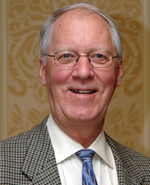
Dr Norman Keevil Professor Emeritus of Ore Genesis Geology, McRae-Quantec Chair Emeritus in Geosciences, Director Sciotiabank Marine Geology Research Laboratory
University of Toronto, Canada
Steven Scott has pioneered the use of deep diving submersibles to observe volcanic massive sulphide ore deposits on the seafloor due to hydrothermal activity. He has been one of the most active scientists in the world in exploring for and facilitating economic mining of deposits on the modern seafloor. One site in the waters of Papua New Guinea may become the first underwater base metal and precious metal mine.
His theoretical work ranges over a very large field of mineral chemistry, the nature and chemistry of fluid inclusions and vent solutions, isotope chemistry and the lithogeochemistry of volcanic massive sulphide environments.
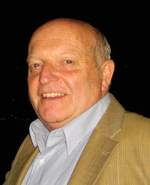
Associate Director, Earth Environment Group Leader, Research School of Earth Sciences
Australian National University
Patrick de Decker’s work is multidisciplinary in nature, with the aim being to reconstruct past marine and continental environments to understand global and regional climatic variability. His pioneering work on the trace elements within the shells of small crustaceans has provided quantitative and accurate estimates of past changes in water temperature and salinity on land and in the oceans. He is currently analysing the origin and composition of Australian dust, which has implications for the environment, the oceans and human health.
ARC Federation Fellow, Scientia Professor, School of Materials Science and Engineering
University of New South Wales
Aibing Yu is an authority in the areas of particle packing, particulate and multiphase processing, as well as simulation and modelling. His research in the field of particle or powder technology, and the modelling of particulate systems, has greatly expanded the scientific knowledge base and has been extensively applied. His work has led to significant economic benefits in mineral, metallurgical, chemical and material industries, most notably steel and coal.
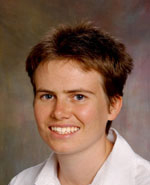
Australian National University
Michelle Coote has played a leading role in adapting computational quantum chemistry as a research tool for the field of free-radical polymerisation, and has developed a robust and accurate methodology for this purpose. The predictive capacities of these techniques seem particularly powerful and are already having a major impact on the field. She has exploited this methodology in her own research to explain the mechanism of several important polymerisation processes, to develop better kinetic models, provide user-friendly guidelines for catalyst selection, and design new control agents and new types of polymerisation reactions. In just a few years, she has established herself at the forefront of this new and rapidly developing field of chemistry, helping to transform computational polymer chemistry from a qualitative tool into a respected and reliable technique that is capable of generating accurate results. Along the way she has advanced our knowledge of fundamental radical chemistry, with implications well beyond the polymer field, and helped to make practical improvements to polymer synthesis and design.
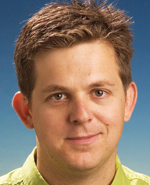
Director, Evolution & Ecology Research Centre, ARC Queen Elizabeth II Fellow, Professor of Evolution,
University of New South Wales
Robert Brooks has combined insights from the fields of evolution, genetics, ecology and behaviour to understand the evolution of sex differences. He has achieved insights into the evolution of sex chromosomes, the biology of ageing and longevity, risks of extinction and the genetic benefits of mate choice. He has fundamentally changed the way scientists and the public think about the relationships between sex, death and diet.

Queensland Statistical Genetics Laboratory,
Queensland Institute of Medical Research
Stuart Macgregor is a statistical geneticist who has developed new methods and tools to analyse a wide range of diseases, ranging from schizophrenia to cancer and glaucoma. He is known for his work in relation to gene mapping, having developed ways to analyse pooled DNA for large-scale genetic association studies. This has led to the discovery of a new genetic risk variant in melanoma.
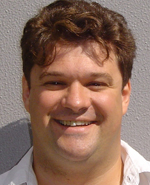
ARC Federation Fellow, Department of Biochemistry and Molecular Biology,
Monash University
James Whisstock studies how our bodies combat infection by bacteria and viruses. He has shown that an important family of human immunity proteins that eliminate cells infected with virus or pre-cancerous cells are related to toxins known to be used by bacteria to destroy human tissue. James’s work may one day help develop new ways to control the unwanted activity of immune proteins in transplant rejection and diabetes.
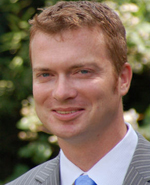
Centre for Offshore Foundation Systems,
University of Western Australia
David White has developed models for the behaviour of the weak and mobile seabed sediments on which the pipelines and infrastructure required to develop Australia’s oil and gas resources must be built. He has led the design and deployment of new instruments to characterise the shifting sands and liquefiable muds found offshore Australia, and his design methods for pipelines and foundations have been rapidly adopted by industry.
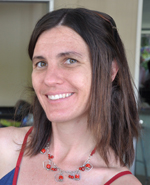
Research Scientist,Marine Microbial Ecology,
Australian Institute of Marine Science
Nicole Webster has researched many aspects of reef bacterial symbioses, including the specificity of symbiotic relationships and the impact of environmental stressors on these sensitive partnerships. Recent work describes the highest bacterial diversity ever reported for an invertebrate host – over 3000 different bacteria living in one type of sponge. Her discovery of a response of spawning corals to bacterial biofilms could help us to understand and predict how coral communities will recover from disturbance.
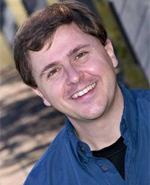
ARC Federation Fellow, School of Mathematics and Physics,
University of Queensland
Quantum optics – the study of the quantum nature of light – provides a technological platform for quantum computing in which the individual quantum bits of information are carried by single photons. Andrew White is a pioneer in the experimental development of the quantum optical approach to quantum computing. He performed the first unambiguous experimental demonstration of an entangling quantum-logic gate with photons in 2003.

ARC Queen Elizabeth II Fellow & Leader of Virtual Nanoscience Laboratory,
CSIRO Materials Science and Engineering
Using Australia’s largest supercomputer, Amanda Barnard studies the possible toxicology and environmental impact of nanoparticles, only millionths of a millimetre in size, by predicting how nanoscale materials could react in different environments. This enables the selection of nanomaterials from the large number currently being produced that are likely to be safest, both for people and the environment, and mitigating the risk of harmful combinations.
© 2026 Australian Academy of Science